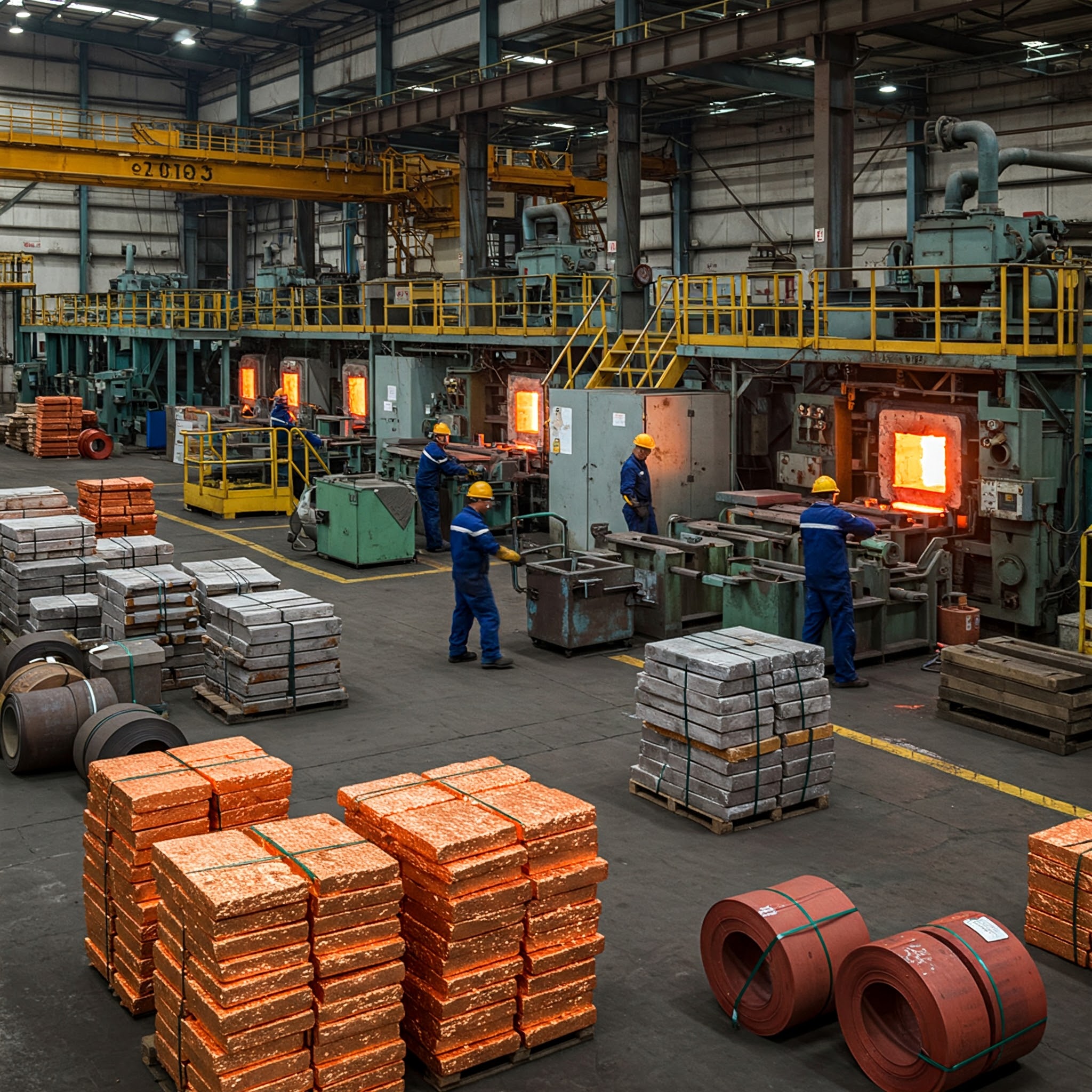
Manufacturer of All Types of Non-Ferrous Alloys
A manufacturer of non-ferrous alloys specializes in producing metals that do not contain significant amounts of iron. These materials are known for their resistance to rust and corrosion, lightweight properties, high conductivity, and excellent strength-to-weight ratio. Non-ferrous alloys are essential in industries such as aerospace, automotive, electrical, construction, marine, and healthcare.
Common Non-Ferrous Alloys Produced:
Aluminum Alloys
Lightweight and corrosion-resistant
Used in aerospace, automotive, and packaging industries
Copper Alloys (Brass & Bronze)
Excellent electrical and thermal conductivity
Ideal for electrical wiring, plumbing, and decorative purposes
Brass (Copper + Zinc)
Malleable and corrosion-resistant
Used in musical instruments, plumbing fixtures, and hardware
Bronze (Copper + Tin/Other Elements)
Stronger and more corrosion-resistant than pure copper
Common in marine hardware and industrial applications
Zinc Alloys
High impact resistance and corrosion-resistant
Widely used in die-casting and automotive components
Nickel Alloys
High-temperature and corrosion resistance
Used in aerospace, chemical processing, and power generation
Titanium Alloys
High strength, lightweight, and corrosion-resistant
Essential for aerospace, medical implants, and marine industries
Key Manufacturing Processes:
Casting – Molten metal is poured into molds to create components.
Extrusion – Metal is forced through a die to create shapes.
Forging – Metal is heated and hammered into strong shapes.
Machining – Cutting and shaping metal into precise parts.
Heat Treatment – Improving strength and durability through controlled heating and cooling.
Applications Across Industries:
Aerospace – Aircraft components and structural parts
Automotive – Engine parts, wheels, and transmission components
Electrical & Electronics – Wires, connectors, and circuits
Construction – Roofing, piping, and architectural elements
Marine – Shipbuilding and offshore equipment
Medical – Implants and surgical instruments